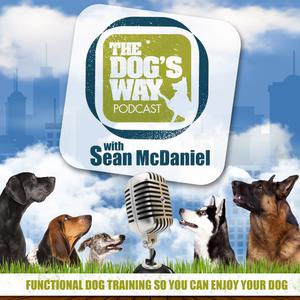
The Dog's Way Podcast: Dog Training for Real Life
Sean McDaniel
- 30 minutes 32 secondsSession 118: Use Transitional Rewards to Help Your Dog Settle
In this episode I talk about natural transitional rewards. Many may not have heard the term, but a lot of you may have used them in the training of your dog whether you realize it or not. If you want to do a real dive into the behavioral part of training, I encourage you to listen to my two episodes on conditioning - Session 73: Skinner's Four Quadrants Part One, and Session 74: Skinner's Four Quadrants Part Two.
I'll talk about the conditioning baked into every day interactions with your dog (like the feeding ritual). The same thing goes for when we are preparing for a walk. Those rituals can be a good thing. But it's it's more than simply the obedience skill you're teaching - it's the nervous system state that is occurring during that sit/stay and from the moment that you give the command to "break free" or say "all done". I'll describe how those commands and practices get embedded in their head, and how that fixation needs to be inhibited in certain instances.
Here are a couple of other instances where you might practically use this training;
- Preparing for a walk
- Preparing for feeding time
- The "Getting out of a car" ritual
- Going through the front door ritual
- Going through the gate at the dog park ritual
I'll talk about how sometimes we unintentionally signal to our dog when we reward certain types of gregarious responses is "I love it when you freak out and run around when I do this action!" Identifying those habits is a real eye-opener to what you might want to consider adjusting during these routines.
Meet Our New Sponsor!By the way, a couple of things that I wanted to mention to you. First, we have a new sponsor of the podcast! It can be so frustrating trying to find the right insurance for your dog! My new sponsor, The Swiftest, can help you compare different types of policies and quotes for your pet to make sure you get the best value for your pet! Click here for the 6 Best Pet Insurance Plans Compared for 2023. (full disclosure – this is an affiliate link, and we’ll make a few bucks if you decide that the pet insurance that the folks at The Swiftest have recommended is right for you.)
The Dog’s Way Affiliate ProgramAlso, I sincerely appreciate all of those who have referred my video series to friends!
Here’s how you can make some money by referring the Online Video course to folks:
Affiliates Resources - The Dog's Way (thedogsway.com)
This process will be very straightforward if you are familiar with the Click Bank Affiliate platform. If you need help signing up with Click Bank and finding the course, there are a lot of videos on YouTube that will walk you through how to do that. If you need some assistance with the process, feel free to email me directly via the link below:
Contact Page - The Dog's Way (thedogsway.com)
6 December 2023, 7:53 pm - 34 minutes 48 secondsSession 117: Teen Puppy Issues and Solutions
In this episode, I dive into the world of teen puppy training, and exploring the challenges and rewards of raising a well-behaved canine companion. Whether you're a new or experienced dog owner, join me as I discuss some tactics for a successful training journey.
The Teenage Phase of Puppy TrainingDuring the teenage phase of puppy training, expect your dog to undergo significant changes in behavior and temperament. This phase usually occurs around 4 to 8 months of age and can be characterized by increased independence, occasional rebelliousness, and a surge in energy levels. Recognizing these changes is crucial, since it allows you to adjust your training approach and provide the guidance and structure your dog needs to mature into a well-rounded adult dog. By understanding that these behaviors are a natural part of their development, you can navigate this challenging period with patience, consistency, and positive reinforcement.
Setting Expectations and Reinforcing Training PrinciplesIt's essential to set realistic expectations and reinforce the fundamental principles of teen puppy training. Remember that every dog is unique, and the training journey may have its ups and downs. Consistency is key: establish clear rules and boundaries from the beginning, and ensure everyone involved in your dog's life follows them consistently.
Positive reinforcement, like rewards and praise, is a powerful tool for shaping desired behaviors and building a strong bond with your dog. Remember that training is an ongoing process. Be patient, stay committed, and enjoy the journey of watching your teen puppy grow into a well-behaved and happy adult dog.
30 June 2023, 11:14 pm - 28 minutes 45 secondsSession 116: How to Teach a Puppy to Stop Jumping Up
In this episode, I talk about using a modified version of the approach I talked about in session 115 so that you can train a puppy. Just like you'd teach your children differently than you would teach them as an adult, there are incremental parts of the process that apply differently to a puppy. As I mentioned with adult dogs, this is fundamental training that is typically one of the first lessons I teach in person. To review the session for adult dogs, check out session 115 here.
The reality of training any social mammal is that it requires different approaches based on age. In all development, small progress markers for are clarified to help create a foundation of understanding for a younger brain. I talk about some of those concepts and how to apply it to training a puppy. Additionally, I'll point out the counterproductive approach to continuing to teach a dog as a puppy, the same way that it might seem odd to teach a teenager the way you'd teach a small child. I'll also cite some examples where you might apply a small version of some of those with older dogs in certain instances.
We'll apply similar principles from session 115, where we use a two-step approach. For puppies, we use it to help with a first stage (away from humans) to remove them from a setting where the puppy may just absolutely lose their mind when approaching a person. Once they've understood that, a second step involves interaction with people.
With a puppy, it's not phrases, but general noise making to draw their attention. I'll demonstrate techniques to enlist help of people you may encounter with your puppy, demonstrate the approach, and specific verbal markers to relay to your puppy during each stage of the process.
This process can be fun and is a key fundamental part of the training process.
Enjoy this episode, and go have fun with your dog!
Sean
15 March 2023, 10:00 am - 46 minutes 29 secondsSession 115: How to Stop Jumping
We're going to go through a protocol to help train your dog (over 7 months old) to stop jumping on you or others.
I'll address the two key scenarios that come up regarding jumping. One scenario, where you live alone and they jump on you. And then another scenario where someone else comes up to visit and your dog jumps on them because they're excited to see them!
I'll provide some setup for those of you who may be new to the podcast; the goal is to help you understand the step-by-step process that talks about the relationship, basic course skills, and then we deal with policies.
Episodes two and three provide some great foundational lessons to understand the relationship between you and your dog.
This is usually a first lesson I provide with in-person training for establishing the relationship between you and your dog - not in the sense of whether or not you care about your dog, but in the fundamental connection that you have. Do they have that type of relationship with you that means they understand the role you two have together in training and obedience? If those foundations need to be established, those two episodes will help.
Thanks for listening!
27 January 2023, 4:09 pm - 38 minutes 9 secondsSession 114: A Follow Up to Questions and Criticism from the Previous Episode
Session 113 covered some training goals to teach a dog to stop certain behaviors, specifically barking and "counter conditioning".
I was surprised to find that Session 113 brought on a record amount of feedback! I got a lot of positive response, but some criticism as well. In this episode I respond to some of that, including a letter from someone who suggested that they were a trainer, and took issue with some of the content in session 113.
I wasn't sure where in the show they heard it, but one part in particular was regarding Patricia McConnell's teaching about counter conditioning, and that somewhere I suggested that they shouldn't use her method. It turns out that I didn't suggest that. I addressed that they had been coached to try that and it didn't work.
Most of this advice is based on a few things; where in the training their dog is, their age, what approaches have been tried in the past and which have not. In some instances a tried and true approach doesn't work, and alternative methods should be applied.
I'll review it from a psychological approach and explain the intent and hopefully clear up some confusion on the subject.
I wanted to talk about another category of feedback I received that was that they tried it but had mixed results. This is what real training looks like in the execution stage. There are techniques and shifts in the approach with every type of dog and behavior. Trina was one of the people who responded and said that using the "tug upward" method to give negative feedback for barking. I asked her a few follow up questions to get a better sense of what she needed to eliminate confusion for her dog.
27 December 2022, 2:58 pm - 39 minutes 18 secondsSession 113: Avoid Mistakes When Teaching a Dog to Stop Barking
In this episode I'll cover some training goals to teach a dog to stop doing something. Barking is one of the key areas of focus, as well as a discussion on "counter conditioning".
Some may ask if they should do the "lab oriented" counter conditioning or another technique. My approach involves assessing where your dog is on a spectrum, and I'll explain the range. It can also be useful to determine for other areas of training. Some may be driven by a defensive approach, a territorial approach, etc., and I'll talk about some of the areas to be careful about when trying to decide whether to put training methods in place. I'll also talk about the shy, scared side of the spectrum that has other challenges and training methods that should be applied.
I will talk about using behavioral adjustment training or counter conditioning when it comes to these techniques as well. Imagine that scenario that causes the dog to bark and you provide some food to distract or adjust the behavior. You'll see them enjoy it in the moment. But what was the treat's connection to the behavior from the dog's perspective? Did you train them for next time, or did you distract them in the moment? Treat training isn't a bad thing but it is important to understand the differences and apply the right methods with this approach.
I also clarify some confusion regarding episode 112 regarding a comment I made regarding shelter dogs.
16 November 2022, 8:19 pm - 40 minutes 27 secondsSession 112: Avoid Making Your Dog Too Crazy with Food Treats
In today's episode I'll go over some mistakes some people make in food treat training and how to avoid making your dog hyper when using food in training.
I don't typically use food as my standard training method (which you've probably learned if you've listened to my podcast for a while). There are instances where it is helpful, and there are very different methods depending upon your dogs age, personality, and upbringing, etc. I'll talk about instances where I use food for training and areas for you to consider as well.
I will answer a specific question from an email I received from Mitch, regarding specific mistakes of using food all the time.
Assess whether it's actually an issue. I'll show you some things to look for.
If you determine that it is a problem, experiment with some different techniques. I'll give a few things to try that I've used when training other trainers, including posture, demeanor, and more.
I talk about "marker" training as an option, and will discuss downplaying treats as a reward as part of this.
I will also talk about redirection, and the comparison and contrast of training methods to use depending on the type of challenge you face.
Enjoy, and hopefully this helps!
1 November 2022, 6:51 pm - 56 minutes 49 secondsSession 111: Interview with Kellee Zenk of Dogs Decoded
Today I speak with Kellee Zenk, who has a very interesting origins that led her to dog training. She's the founder of Dogs Decoded, based in Minnesota.
Kellee has a background in training bears and elephants! We discuss how she got started in that area and how it led to where she is today.
Kellee got her start at private zoos in Minnesota and loved training bears and really enjoyed marker and clicker training. She talks about some early mistakes and talks about the full range of experiences.
Kellee and I contrast the dynamic of dog trainers and how you develop better communication with the dog owners as you gain more experience. We also talk about our approach to "play" with dogs, and how to help owners create certain distinctions regarding when play time is on and off, and how to establish that relationship over time as the relationship is clarified.
I ask Kellee about her method or philosophy and how it has evolved. Kellee talks about how she is not a "purely positive" trainer. She is very versed in Skinner's theory, which we've detailed in podcast episodes 73 (part 1) and 74 (part 2).
We talk about bridging signals as part of verbal markers and get deeper into Skinner's four quadrants.
15 June 2022, 11:53 pm - 38 minutes 21 secondsSession 110: Melissa Stagnaro of American Retteungshunde Sport Association
On this episode I introduce Melissa Stagnaro, the Vice President of American Retteungshunde Sport Association. With the long name, it is commonly nicknamed "RH".
They are an organization that does "sport" search and rescue.
This is a great sport for your dog that is incredibly unique, and focuses on some pretty high-level activities for fun and exercise.
We talk about the origins. FCI, (which is the International Dog Federation) partnered up with a newly formed group called the International Rescue Dog Organization. They ultimately created four levels of sport competition related to rescue. They focus on scents, urban disasters, earthquake simulations, footstep tracking, building collapses, and much more.
We talk about what this looks like for people that want to join in, and Melissa discusses their interest in getting more people involved in existing events and establishing more clubs.
There is an event going on in Washington state as well. For more information on that, click here.
For more information visit SearchAndRescueSport.org.
23 May 2022, 8:22 pm - 38 minutes 34 secondsSession 109: Interview with Elaine Rosen of Dog Lodge
On this episode I talk with Elaine Rosen, President and CEO of Dog Lodge, based in Texas. She also is the host of the podcast, Dog Lodge Radio.
Dog Lodge is a great non-profit that deals with elderly and special needs dogs. It is essentially a senior dog retirement home and hospice care facility. They focus on providing a permanent home to dogs whose futures are particularly bleak. They concentrate primarily on dogs that may have come from shelters, rescues, and some private homes. Elaine and her business partner started the concept together after considering where the deficits existed in care for dogs and found that there were many rescues available but not a lot of help for senior animals. They found some land in Hempstead, Texas, and with a lot of support and dedication they have created quite an incredible organization.
Elaine talks about the initial fear prior to getting started - would anyone besides them would care this much about senior dogs? She and her business partner quickly found out that there was a lot of support for the effort.
The expense and work involved is intense; determining intake criteria, medical care needs and costs, and more. Sean and Elaine also talk about the owners of pets who are near the end of their frustration with their pets and are considering re-homing.
One of the cornerstones for taking in animals is a determination of the quality of life that they can provide based on it's medical needs. If they cannot provide a high standard of care for the animal, they have no business taking it in.
They help arrange foster homes as well. It really is an incredible non-profit organization.
They started a podcast called Dog Lodge Radio: Animal Issues That Matter. It focuses on their organization, but also animals other than dogs - they find and share fascinating stories about various sanctuaries for different animals, including horses and elephants!
To learn more, to reach out for help, or contribute to the organization, you can visit their website DogLodge.org. They are perpetually in need of contributions. You can visit their website and donate by clicking here, or visit their Facebook page here. They also accept in-kind donations. For information about that, contact them here.
31 October 2021, 6:30 pm - 1 hour 4 minutesSession 108: Interview with Brad Bevill, Dallas Dog Behaviorist
On this episode, I sit down with Brad Bevill, who is an incredibly talented dog behavior expert. Brad's focus for dogs is teaching them to be in a follower mindset and balanced emotionally. Brad's focus for people is teaching them to be fair, and consistent leaders for their dogs, and to teach them how to fulfill their dog's lives more profoundly. Brad and I talk about how he discovered this passion of his, how he transitioned from the corporate world, and what his mission has been since 2013.
Brad owns and operates Bevill Dog Behavior with his wife in Dallas, Texas, and operates multiple locations in the area.
Brad's focus is on a broader approach to training, and one of his priorities is to help owners find a true connection with their dogs. Their mission is to educate humans, train dogs, and rebuild relationships.
Brad's company can be found on the following platforms;
- His website, BevillDogBehavior.com
- on Instagram @BradBevill
- His Facebook page, here
15 October 2021, 10:00 am - More Episodes? Get the App
Your feedback is valuable to us. Should you encounter any bugs, glitches, lack of functionality or other problems, please email us on [email protected] or join Moon.FM Telegram Group where you can talk directly to the dev team who are happy to answer any queries.
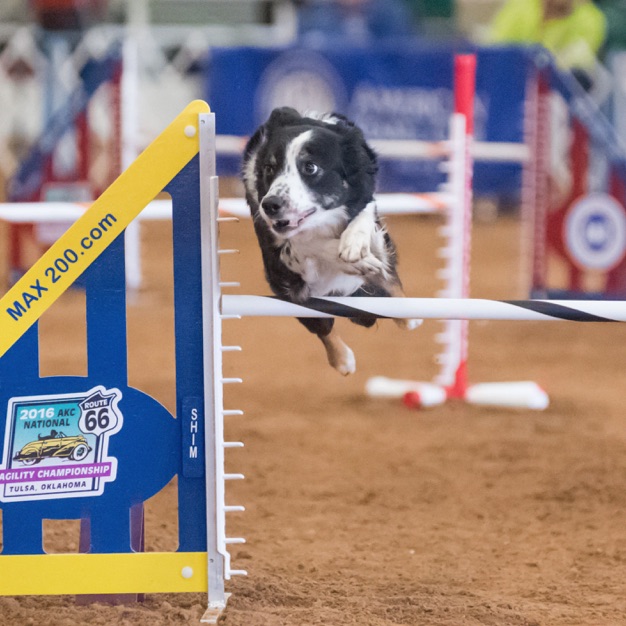 Cog-Dog Radio
Cog-Dog Radio
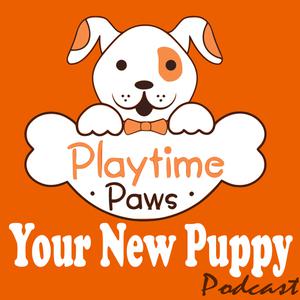 Your New Puppy: Dog Training and Dog Behavior Lessons to Help You Turn Your New Puppy into a Well-Behaved Dog
Your New Puppy: Dog Training and Dog Behavior Lessons to Help You Turn Your New Puppy into a Well-Behaved Dog
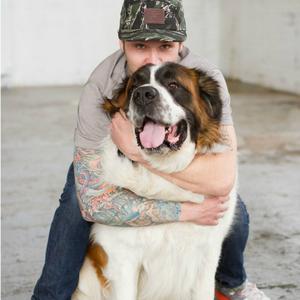 No Bad Dogs Podcast
No Bad Dogs Podcast
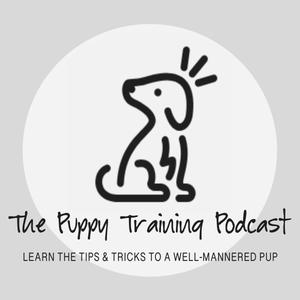 The Puppy Training Podcast
The Puppy Training Podcast
 Shaped by Dog with Susan Garrett
Shaped by Dog with Susan Garrett
 Radiolab
Radiolab